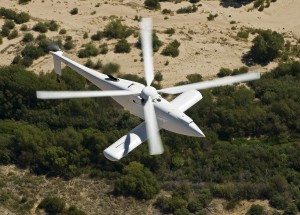Drone Pilots Could Be the Next Hot Career

That’s right: those small aircraft that have become a boom business for real estate companies, utilities, and other organizations that need eyes in the sky need pilots to fly them — pilots that are well trained and, apparently, well compensated.
According to a CNNMoney report (via HartfordBusiness.com ), “Big companies, such as Amazon and Facebook, are looking for pilots who fly drones and engineers with experience in building the unmanned aircraft. And they are willing to pay top dollar for the right stuff.”
The Washington Post says there are public sector employers flying drones. “Police and sheriff’s departments in Queens Anne’s County, Md.; Arlington, Tex.; Mesa County, Colo.; and Miami-Dade County, Fla., have already started experimenting with unmanned aircraft for fire fighting, photography and other uses.”
Echoing what CNNMoney reports, the Post says, “Facebook is reportedly in talks to buy Titan Aerospace, a drone production company that is developing solar-powered atmospheric satellites that could bring Web access to parts of the world with limited Internet connections.”
Once drones are cleared for takeoff — which should happen within the next year — hiring is expected to explode. CNNMoney says, “As many as 100,000 new jobs will be created in the first 10 years after unmanned aircraft are cleared for takeoff in U.S. airspace, according to a 2013 report from the Association for Unmanned Vehicle Systems International.”
Those will be high-paying jobs, too, CNNMoney says: “Large employers are already paying up for drone pilots — about $50 an hour, or over $100,000 a year — according to Al Palmer, director of the center for Unmanned Aircraft Systems at the University of North Dakota. Palmer expects the drone industry to grow exponentially as companies discover new uses for drones.”
Northrop Grumman Corporation and the University of North Dakota signed a cooperative agreement to offer unmanned aircraft system (UAS) pilot training to domestic and global customers using SandShark, a remotely piloted aircraft (RPA) trainer. Pilots fly the aircraft from anywhere in the country through a commercial broadband Internet connection or 4G cellular network. That means pilots-in-training have no need to relocate to North Dakota (even though it has a good job market, thanks to fracking). The agreement also facilitates new career development programs and employment opportunities for students in science, technology, engineering, and mathematics (STEM) disciplines and aviation programs.
CNNMoney reported earlier this month about Amazon’s hiring of drone pilots. “Amazon is looking for engineers to help test and develop Prime Air, its drone delivery service,” the report said. “According to the job posting, candidates should have at least five years of experience flying drones. It helps if you can fly actual airplanes. The company lists a pilot’s certificate among the ‘preferred qualifications’ for the job.”
CNNMoney also said, “Amazon is also looking for candidates who are knowledgeable about laws governing the use of unmanned aircraft. ‘We’re looking for aerospace, systems, or other engineers with extensive UAS flight experience, and preferably experience in working with authorities on UAS certification,’ the job description states.”
Not surprisingly, law firms are stepping up to understand and interpret drone laws. The Washington Post also reported, “Banking on the fact that drones will become more mainstream in commercial and private use, two major U.S. law firms announced … that they are starting drone practice groups — Richmond-based LeClairRyan and Atlanta-based McKenna Long & Aldridge.
“LeClairRyan and McKenna Long are looking to expand their work representing companies that design, manufacture, and operate drones in shaping the upcoming FAA regulations, as well as guiding companies through the FAA certification process. The FAA must certify any aircraft, manned or unmanned, that goes into the sky, and anyone who wants to operate a vehicle has to go through an application process.”

